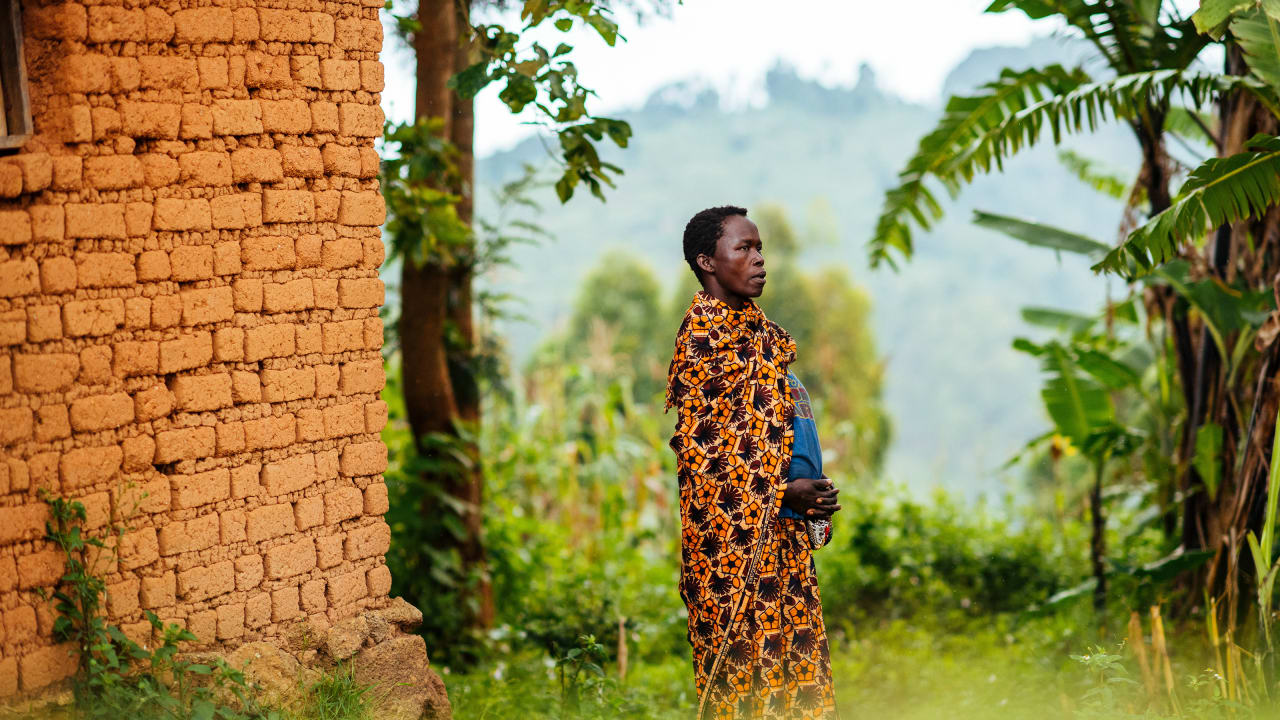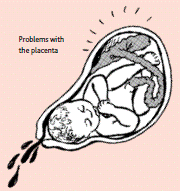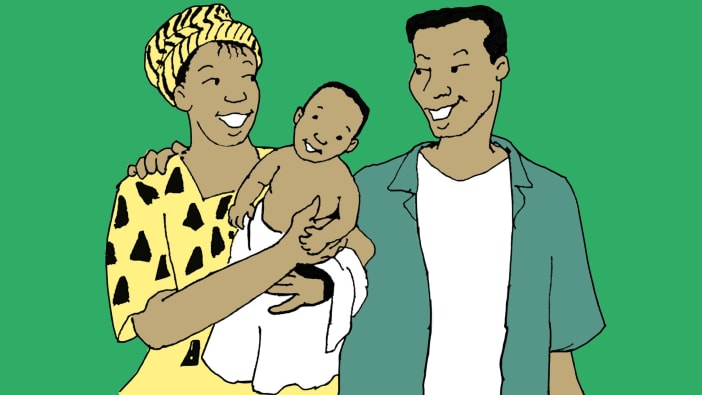Weakness and tiredness: Weakness and tiredness could be caused by weak blood (anaemia). See Maghoo’s fifth baby survives for more information.
Pain in the belly: There are different possible causes for pain in the belly, including ectopic pregnancy (see Saving a mother’s life), miscarriage or problems with the placenta.
Swelling of hands and face, or bad headache and blurred eyesight: High blood pressure combined with swelling of the hands and face, or a bad headache and blurred eyesight, can mean eclampsia, which causes seizures (eclampsia is also known as pre eclampsia or toxaemia).
Bleeding from the vagina: Bleeding after the first three months can mean that there is a problem with the placenta.
Fever: Fever can be a sign of malaria or infection. Pregnant women living in malarious areas should take antimalarials as advised.
A woman with any of these signs may be in serious danger and should see a health worker.
Some danger signs can only be correctly diagnosed and managed by a health worker:
- Baby in wrong position for birth
- Multiple pregnancy, eg twins
- Mother and/or father is living with HIV
- Mother has syphilis.
Trained midwives and skilled attendants can tell when a baby is in the wrong position for birth and can attempt to move the baby. It is dangerous for an untrained person to try to move the baby!
All women should be checked for HIV and syphilis early in pregnancy. Look on the back page for more information.
Count the kicks
Once a pregnant woman can feel the baby moving regularly, she should pay attention to how often the baby kicks. If the baby stops moving, she should go to the health centre where a health worker can listen for the baby’s heartbeat to check that the baby is still healthy.








